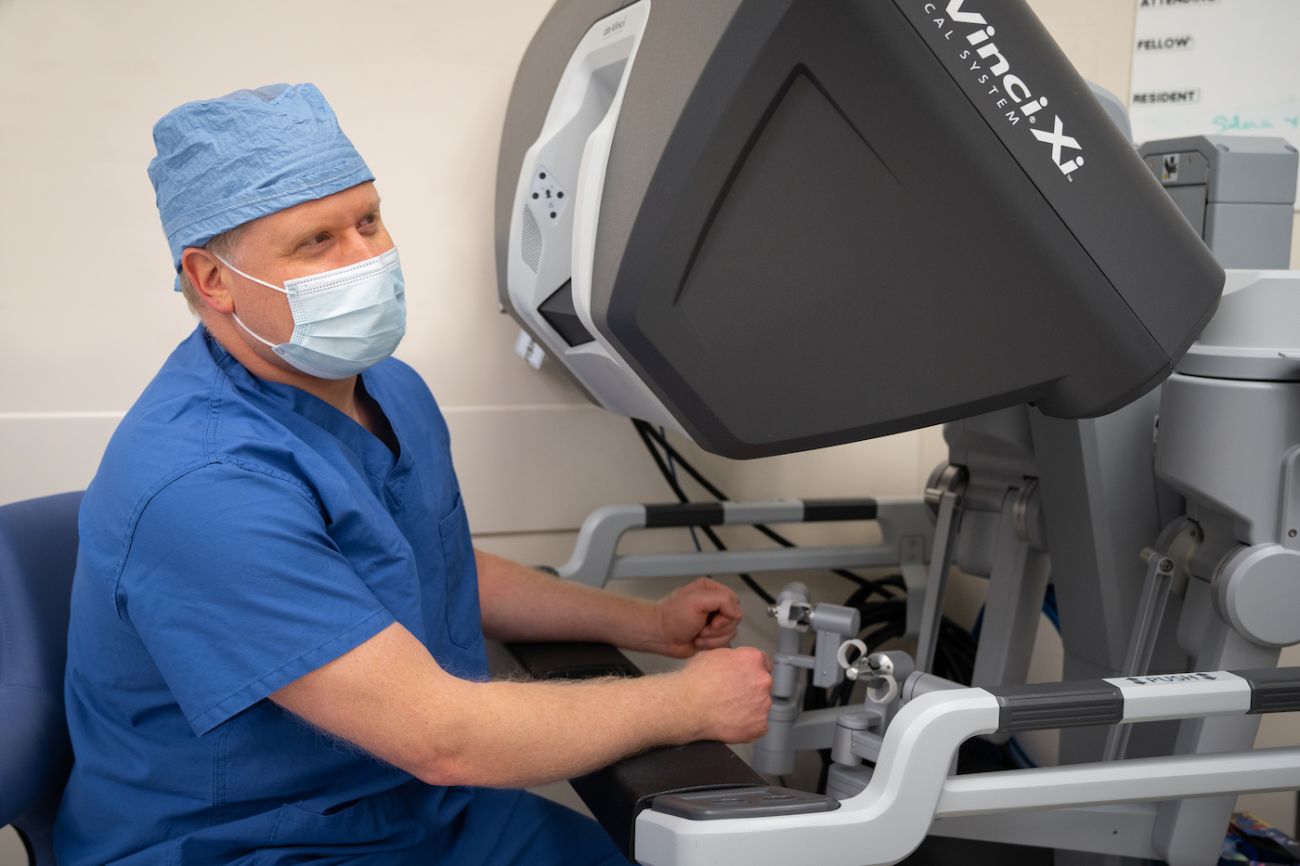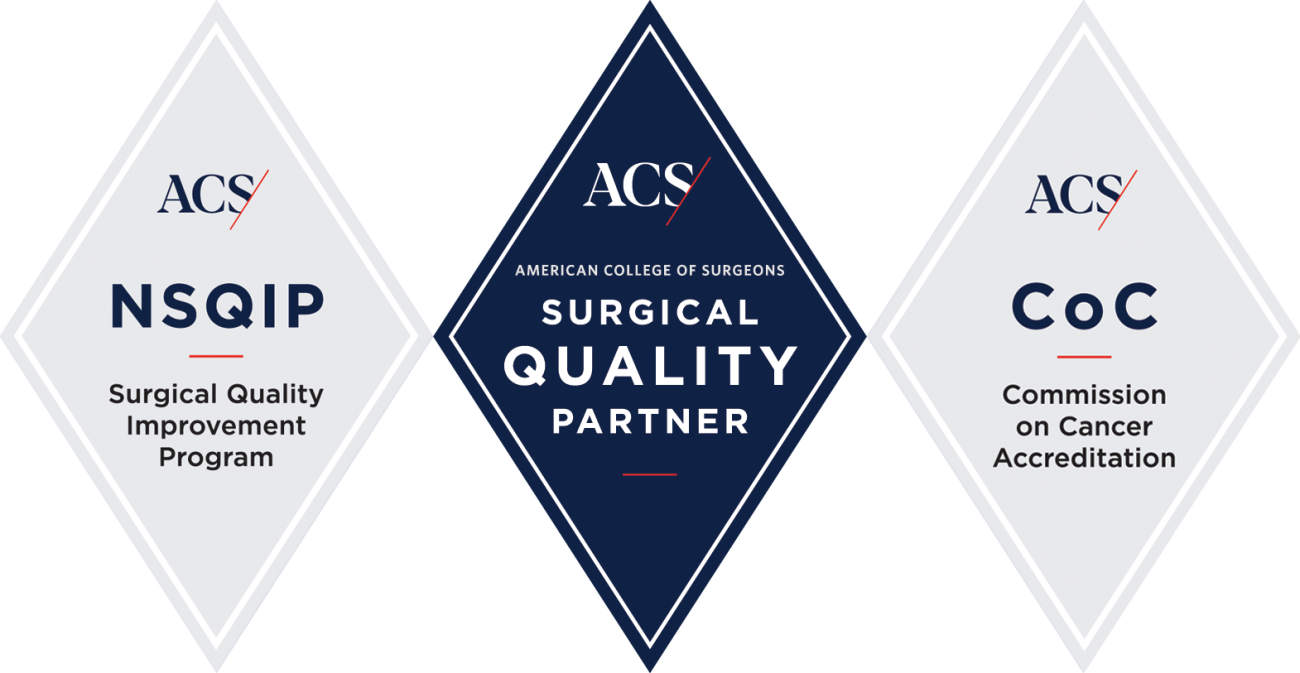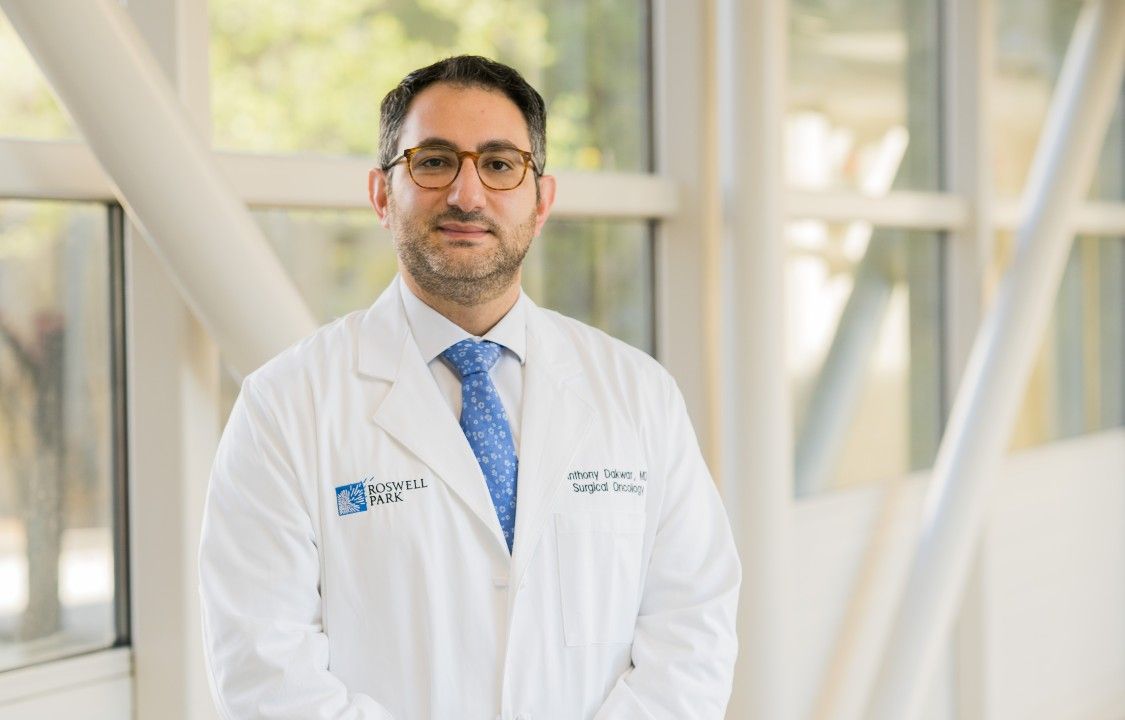Removing cancer by surgery is a common first step for patients with colon cancer, and a possible second step after chemotherapy for patients with rectal cancer.
Our surgeons perform the majority of colon and rectal surgeries with minimally invasive techniques such as laparoscopic or robotic procedures. These approaches offer patients several benefits over traditional, open surgery, including:
- Smaller incisions that heal faster with less scarring
- Less pain
- Shorter hospital stay
- Faster recovery
To treat your cancer, our colorectal surgeons may recommend one of the following procedures:
- Colectomy to remove the portion of the colon containing the cancer and reconnect the healthy portions back together. How much of the colon is removed depends on your blood supply, the drainage patterns of your lymph nodes, the tumor’s location and the extent of your disease.
- Colostomy. This procedure (performed at the same time as a colectomy) creates a new path for waste to leave the body through the abdominal wall into a colostomy bag, a plastic pouch worn outside the body. This allows the colon and rectum time to heal after surgery to remove the cancer. For most of our patients, the colostomy is temporary and can be reversed with another small surgical procedure.
- Proctectomy to remove all or part of the rectum, the last 6 inches of the large intestine. How much of the rectum is removed depends on your tumor's location and extend of your disease.
- Transanal minimally invasive surgery (TAMIS) is a surgical procedure performed through the anus for early-stage rectal tumors, or for patients who have several other health conditions that make other surgery types too risky for them. Roswell Park is one of few facilities that performs this procedure with robotics, taking the precision to a higher level. When this procedure is performed robotically, it's called robotic transanal minimally invasive surgery (rTAMIS).
- Endoscopic mucosal resection (EMR) is a minimally-invasive procedure performed through an endoscope to remove early tumors of the colon or rectum.
- Lymph node surgery to remove the lymph nodes associated with the portion of the colon or rectum that is removed is an important part of treatment and staging. These lymph nodes must be analyzed properly to determine whether they contain any cancerous cells. Cancer that has spread to lymph nodes means you’ll likely need other treatment beyond surgery, such as chemotherapy.
- Total Mesorectal Excision (TME) is a critical procedure for patients with rectal cancer. This surgery removes the rectum along with the surrounding lymphatic tissue, called the mesorectum. Ensuring complete removal by a skilled surgeon is essential to reduce risk for recurrent cancer.
Can you avoid a colorectal operation?
We offer advanced endoscopic procedures (similar to a colonoscopy) and many patients with early-stage disease may have their tumor removed without an operation.
Advanced, robot-assisted surgery was worth the 3-hour drive to Buffalo for Richard. Read more
The Roswell Park advantage
In cancer surgery, the ability to remove the cancer entirely and achieve a clear (or negative) margin — where the tissue surrounding the tumor is cancer-free — is paramount to curing the cancer. Roswell Park has unique capabilities to ensure clear margins or treat any high risk (or positive) margins, such as:
- Mid-procedure pathology review allows tissue samples from the margin area to be analyzed by a pathologist on the spot, confirming cancer-free margins before the surgery is completed.
- Intraoperative radiotherapy delivers radiation to the margin area during the operation to kill any residual, microscopic cancer cells.



